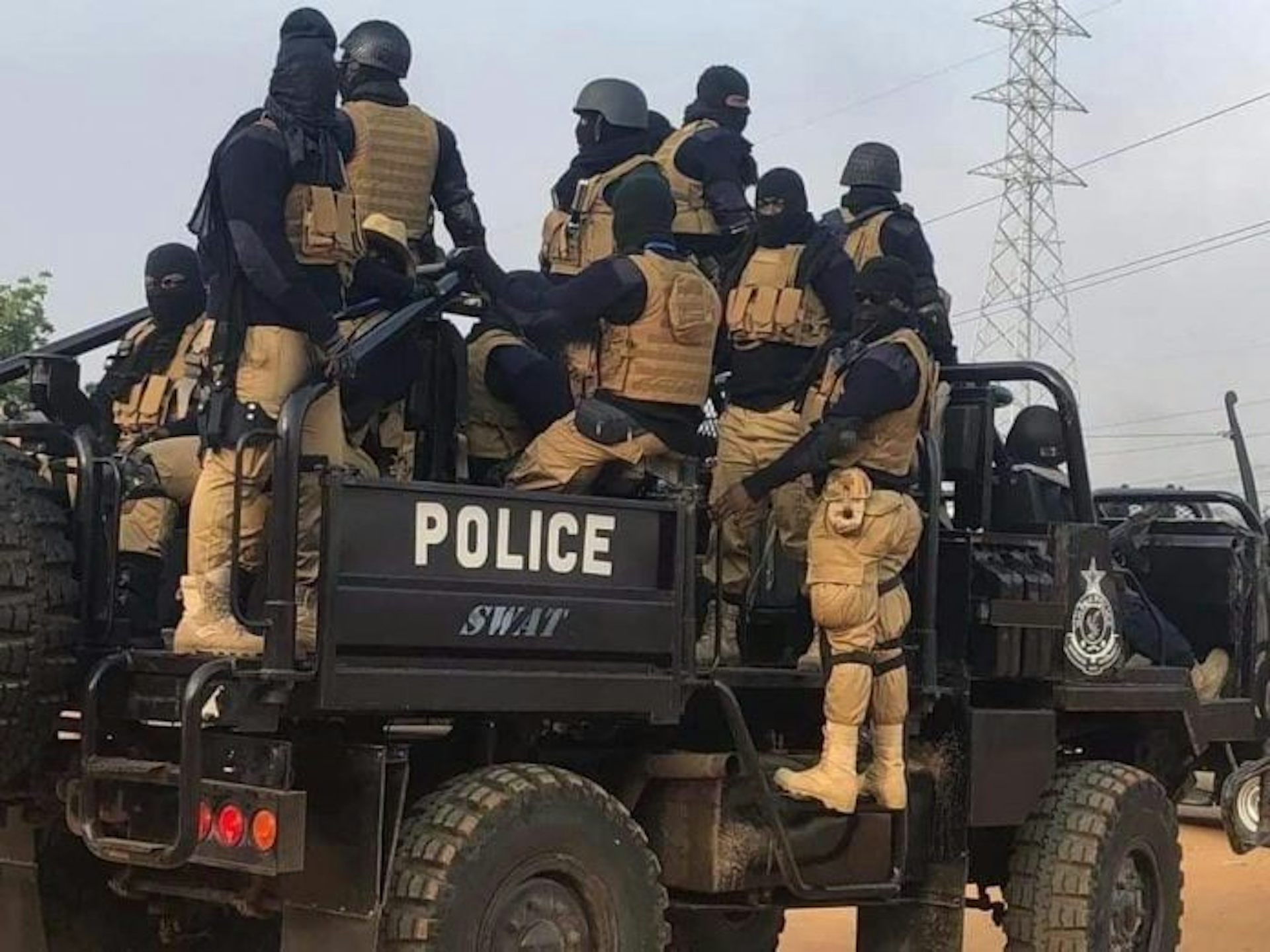
Caleb Kudah, a journalist with the Accra-based Citi TV, didn’t expect that an investigation into unused cars at the Ministry of National Security would kick a hornets’ nest in the country – the role of the country’s security apparatus.
Kudah was investigating why cars purchased with public funds for distribution to transport unions had been abandoned at the premises of national security.
Ghana’s security officials were unimpressed. They arrested Kudah, manhandled and cuffed him. They then took him to the premises of Citi TV offices intent on destroying evidence. They also arrested his colleague with whom he had shared mobile-camera videos.
The events shocked Ghanaians who were shown footage of heavily armed members of a special tactics unit bursting into the offices of one of Ghana’s leading media houses. The scene was reminiscent of action taken by the same unit during a parliamentary by-election in January 2019 when the same special tactics unit assaulted voters and a sitting member of parliament.
Civil rights groups and parliamentarians are demanding a probe into the Kudah incident.
The key question they’re asking is whether the ministry’s behaviour was in line with the 1992 constitution. Its landmark tenet is its emphasis on civilian control and legislative oversight over Ghana’s security agencies.
Former president Jerry Rawlings, who had come to power in a coup 1981, held a referendum in April 1992 on multiparty democracy. Over 92% people voted in favour. The idea was to put Ghana on an inclusive and democratic path. A key part of this was to curb the tendency of the security establishment to interfere in political processes.
The 1996 Security and Intelligence Agencies Act was the first law to be passed after Rawlings won the December 1996 elections. But the law hasn’t protected civilians from abuse at the hands of national security operatives.
A look back at how Ghana established its security services after independence provides clues about why.
In a recent paper I used previously untapped archives to explore how India built Accra’s security service between 1958 and 1961. Ghana sought India’s support when both Cold War rivalry and Afro-Asian solidarity were at a peak. The newly independent West African country was keen to reduce its dependency on the outgoing British colonial administration.
But by involving high ranking Indian officials, Ghana inherited a similar set of problems that affected intelligence headquarters in Delhi. This included resorting to colonial policing methods such as oppressive tactics, a lack of legislative oversight and a recruitment system based on partisan loyalties instead of professionalism.
Ghana continues to struggle with this legacy.
Tumultuous history
Kwame Nkrumah, Ghana’s first prime minister and president, was conscious of the nature of colonial policing and intelligence. It was focused on torture, brutality, corruption, negligence, abuse, ineffectiveness, and differential treatment.
To distance Ghana from colonial British practices, in 1957 he sought support from Indian prime minister Jawaharlal Nehru. The idea was to benefit from independent India’s experience.
Indian officers ended up creating, and unofficially leading, a whole new intelligence agency – the Foreign Service Research Bureau. Its role was to provide “reliable intelligence and counter-intelligence capability to protect Ghana’s independence.”
It soon became clear that Ghana had imported problems that had plagued Indian intelligence services. The bad habits crossed over from the external to the internal agencies.
There were three key problems.
One, the Indian mastermind of Ghana’s Foreign Service Research Bureau was the Director of the Intelligence Bureau of India, Bhola Nath Mullik. Ghana, like India, had a huge network of police stations and officers across the country who could deliver critical intelligence. This should have been a positive. However, it ended up strengthening colonial policing practices and mindsets like intimidation and corruption.
Policing became conflated with intelligence. Intelligence gathering is an important part of policing. But it is only a small part of the job. Drawing spies mostly from the policing cadre risks confusing core competencies. Risks are even higher if spies are drawn from a policing service that has been trained and created by a colonial power that saw people as “subjects”, not “citizens”.
The result is an intelligence agency more prone to using invasive and coercive practice – and becoming highly politicised.
Second, Nkrumah used bureau as a vehicle of patronage. Even the first two officers trained by (and in) India, Paul Yankee and Benjamin Forjoe, were from the Nzema tribe, the same as Nkrumah.
Such favouritism laid the foundation for endemic corruption and indiscipline in Ghana’s security sector.
Third, in a five-page top-secret note Mullik recommended immense concentration of power in Nkrumah’s office. Similar to India, where intelligence agencies were beyond the purview of parliament – still the case today – this recommendation effectively gave Nkrumah direct access to coercive arms of the state without any checks and balances.
He used his power to cultivate loyalties and crush dissent. By early 1960s, such unchecked power had fed Nkrumah’s authoritarianism to such an extent that he made himself president for life. And Ghana a one-party state.
Nkrumah’s authoritarianism forestalled democratic progress and politicised Ghana’s security establishment.
Nkrumah was ousted in a military-led coup in February 1966, triggering a highly turbulent phase in Ghanaian history.
Speaking truth to power
As the recent incident demonstrates, maintaining legislative oversight over security establishments is an ongoing process, not a one-off event. It has to be proactively maintained. And any successes can never to be taken for granted.
Ghana has come a long way from the era of Nkrumah and the post-Nkrumah coups d’état and has a lot to cherish in its decisive break from authoritarianism in 1992.
But a genuinely free press is never fully in the interest of a corrupt bureaucracy and a politicised security establishment. Kudah, his colleagues, and those parliamentarians and civil rights groups seeking a probe into this incident are continuing a hard-won Ghanaian tradition of speaking truth to power.![]()
Avinash Paliwal, Senior Lecturer, International Relations, SOAS, University of London
This article is republished from The Conversation under a Creative Commons license.


